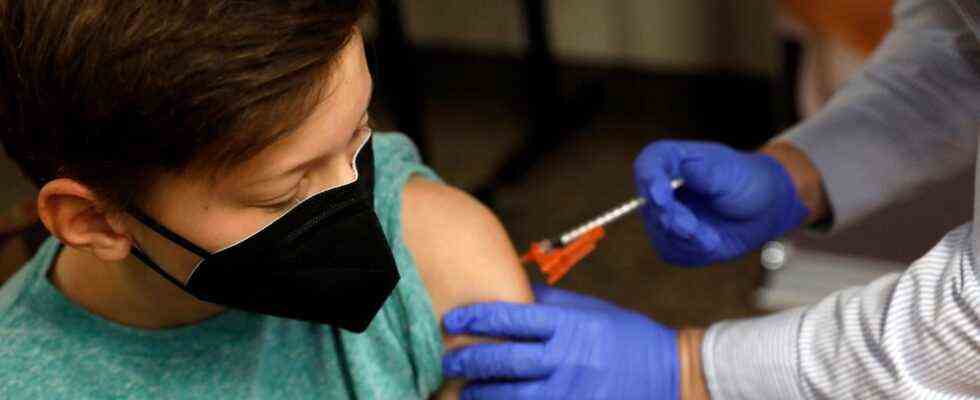Status: 10/27/2021 4:30 a.m.
In the USA, corona vaccinations for children from the age of five are approaching according to a recommendation by the vaccination committee. In this country, the Stiko is cautious. The Apothekerverband expects a vaccination recommendation in Germany only for small children with previous illnesses.
In the USA, corona vaccinations are getting closer for children from the age of five. The FDA’s Vaccination Committee has recommended that BioNTech / Pfizer’s vaccine be given emergency approval for children between the ages of five and eleven. The FDA experts consider the benefits of vaccination for this age group to be significantly higher than the possible risks.
BioNTech / Pfizer have also applied for approval of their vaccine for five to eleven year olds in the EU. The FDA Vaccination Committee highlighted that the coronavirus is dangerous for younger children too. They would be “anything but spared from Covid-19,” said FDA scientist Peter Marks. In this age group, 1.9 million corona infections, more than 8,300 hospital admissions – with treatment in the intensive care unit in a third of the cases – and around a hundred deaths were registered.
“Benefits outweigh the risks”
“It’s pretty clear to me that the benefits outweigh the risk of hearing about children who are in intensive care, who have long-term effects of Covid, and who are dying,” said Amanda Cohn of the CDC. She and 16 other members of the panel of experts voted for emergency approval of the vaccine for five to eleven year olds. There was one abstention.
The FDA must now decide on the official approval. As a rule, the drug authority follows the recommendations of the panel of experts. Then the CDC health authority has to make a corresponding vaccination recommendation. A panel of experts based there will examine the question on November 2nd and 3rd.
US government in the starting blocks
The US government hopes to start a large-scale vaccination campaign for the roughly 28 million five to eleven year olds in the country soon afterwards. Children in this age group should receive two doses of the vaccine, each ten micrograms. The usual dosage is 30 micrograms each.
According to Pfizer, the protection against Covid 19 disease through vaccination in five to eleven year olds is 90.7 percent. So far, the vaccine has an emergency approval from the age of twelve and a full approval from the age of 16 in the USA. In the EU, the vaccine from the Mainz-based company BioNTech and its US partner Pfizer has so far been conditionally approved for children and adolescents from the age of twelve.
Stiko boss cautious
In Germany, the chairman of the Standing Vaccination Commission, Thomas Mertens, expressed reluctance to corona vaccinations for children from the age of five. The Covid 19 disease burden in children is “apparently higher in the USA than in Germany,” he told the Düsseldorf “Rheinische Post”.
The data from the vaccine approval study for five to eleven year olds, which were submitted to the European Medicines Agency EMA, have also been available to the Robert Koch Institute and Stiko since Tuesday – “and must be evaluated, said the Stiko boss .
Pharmacists do not expect a general vaccination recommendation
The President of the German Child Protection Association, Heinz Hilgers, said: “I would very much appreciate it if there was a safe vaccine for children.” However, this would have to be assessed by professional experts such as the Stiko scientists – and independently, emphasized Hilgers in the papers of the editorial network Germany. “Politicians shouldn’t put any pressure on them.”
However, the North Rhine Pharmacists’ Association expects that the Stiko will only recommend a corona vaccination for previously ill children under the age of twelve. “I am not assuming a general vaccination recommendation from Stiko or politicians,” said association boss Thomas Preis of the “Rheinische Post”. Every child is vaccinated against measles, mumps and rubella for good reason. However, coronavirus infections did not cause “such serious complications as we know from typical childhood diseases” in small children.

